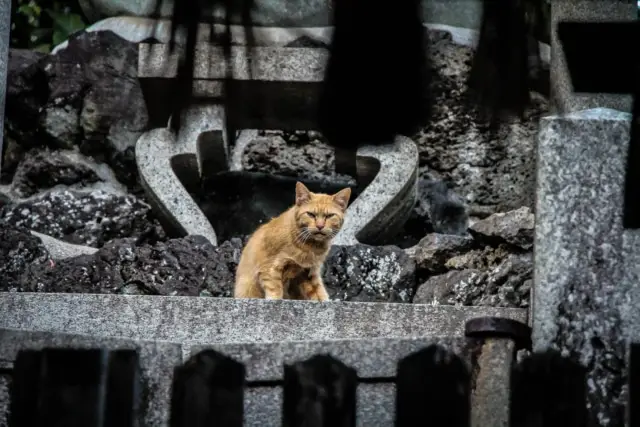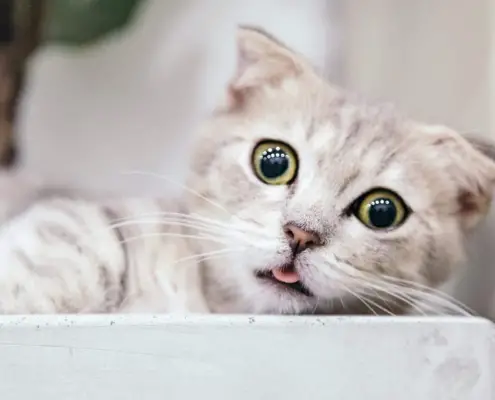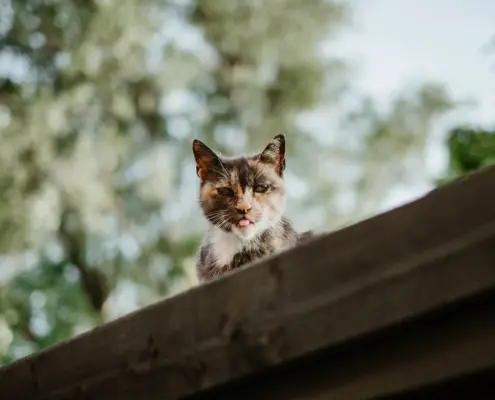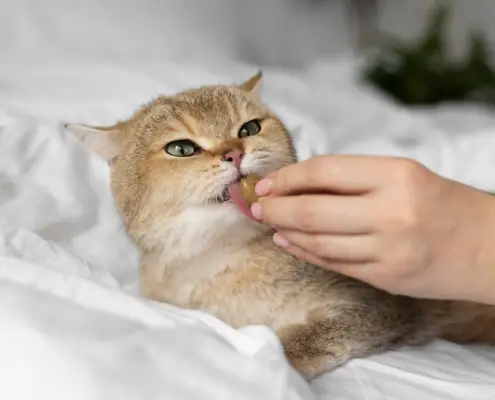
Cats have long been admired for their grace, independence, and mysterious nature. One aspect of feline life that continues to captivate us is their remarkable lifespan. Over the years, there have been countless stories of cats living well into their late teens, twenties, and even beyond. This article delves into the fascinating world of the oldest cats in history, shedding light on the factors that contribute to their longevity and offering tips on how to increase your own cat’s lifespan.
The oldest recorded cats in history
Throughout history, there have been extraordinary feline individuals who have defied the odds and surpassed the average lifespan of a cat. One such famous feline is Creme Puff, who holds the record for being the oldest cat ever recorded. Creme Puff lived an astonishing 38 years, an impressive feat considering the average lifespan of a domestic cat is around 15 years. Another notable cat is Grandpa Rex Allen, who lived to be 34 years old. These remarkable cats serve as a testament to the potential longevity of our feline companions.
Factors that contribute to a cat’s longevity
While genetics play a role in a cat’s lifespan, there are numerous other factors that contribute to their longevity. Proper nutrition is crucial, as a balanced diet tailored to a cat’s specific needs can help prevent a range of health issues. Regular exercise is also important, as it helps keep cats physically fit and mentally stimulated. Additionally, providing a stress-free environment and minimizing exposure to toxins can greatly contribute to a cat’s overall well-being. Finally, regular veterinary care, including vaccinations and check-ups, is essential in detecting and addressing potential health problems early on.
Common health issues in older cats
As cats age, they may become more susceptible to certain health issues. Arthritis, dental disease, kidney disease, and hyperthyroidism are among the common ailments that older cats may face. Arthritis, for example, can cause discomfort and limited mobility, while dental disease can lead to pain and difficulty eating. It is important for cat owners to be aware of these conditions and to seek veterinary care if any signs or symptoms arise. With proper management and treatment, many of these health issues can be effectively addressed, allowing cats to enjoy a longer and healthier life.
Tips for increasing your cat’s lifespan
If you want to ensure that your cat lives a long and fulfilling life, there are several steps you can take. Firstly, providing a well-balanced diet that meets your cat’s nutritional needs is essential. Consult with your veterinarian to determine the best diet for your cat’s age and health condition. Regular exercise and mental stimulation are also crucial. Engage your cat in interactive play sessions and provide toys and scratching posts to keep them physically and mentally active. Additionally, ensuring your cat has a safe and stress-free environment will greatly contribute to their overall well-being.
Diet and nutrition for senior cats
As cats age, their nutritional requirements change. Senior cats may require a diet that is lower in calories and higher in easily digestible proteins to maintain a healthy weight and support muscle mass. Additionally, incorporating supplements such as omega-3 fatty acids can help support joint health and improve cognitive function. It is important to consult with your veterinarian to determine the best diet and nutritional plan for your senior cat’s specific needs.
Exercise and mental stimulation for senior cats
Just because a cat is getting older doesn’t mean they should stop engaging in physical and mental activities. In fact, regular exercise and mental stimulation are essential for senior cats to maintain their overall health and well-being. Engage your senior cat in play sessions using interactive toys and puzzles. Provide scratching posts and climbing structures to encourage exercise and maintain muscle tone. Mental stimulation can be achieved through food puzzles and interactive games. These activities will not only keep your senior cat physically fit but also keep their minds sharp and alert.
Veterinary care for older cats
Regular veterinary care is crucial for older cats to detect and address any potential health issues early on. Senior cats should have routine check-ups at least twice a year, during which the veterinarian will perform a thorough examination, including blood work and urinalysis. Vaccinations should be kept up to date, and dental cleanings may be necessary to prevent dental disease. In addition, your veterinarian may recommend additional screenings, such as blood pressure monitoring or thyroid function tests, to ensure the overall health of your senior cat.
Stories of remarkable senior cats
The world is full of heartwarming stories of remarkable senior cats who have defied the odds and lived long, fulfilling lives. One such story is that of Scooter, who lived to be 30 years old and held the Guinness World Record for the world’s oldest cat. Scooter traveled to 45 out of the 50 U.S. states with his owner, creating cherished memories along the way. Another inspiring story is that of Tiffany Two, who lived to be 27 years old and was recognized by Guinness World Records as the oldest cat at the time. These extraordinary feline individuals serve as a reminder of the incredible bond we share with our feline companions.
Celebrating the incredible lives of the oldest cats in history
The remarkable lifespan of cats is a testament to their resilience, adaptability, and the care they receive from their owners. By understanding the factors that contribute to a cat’s longevity and providing them with the necessary care, we can help ensure that our feline friends live long and happy lives. From proper nutrition and regular exercise to veterinary care and mental stimulation, every aspect plays a vital role in promoting a cat’s overall well-being. Let us celebrate the incredible lives of the oldest cats in history and strive to provide our own cats with the love and care they deserve.
If you enjoyed my article, I would appreciate you sharing it with your network.

Sima Ndlebe
Sima writes for CatBuzz. He is interested in Cats, Health and Fitness, and Entrepreneurship.
Published: 13 October 2023
Related Articles
Disclaimer
The content found on CatBuzz.org is presented on an "as is" basis and is intended for general consumer information and education purposes only. Any utilization of this information is voluntary and solely at the user's own risk.
None of the articles or content should be regarded as, or used in place of, veterinary medical advice, diagnosis, or treatment. The information provided on the website is purely for educational and informational intentions and should not be considered a substitute for professional guidance from a veterinarian or other qualified expert. The articles are designed to inform consumers about veterinary healthcare and medical matters that may impact their cat's daily life. It should be noted that this website and its services do not constitute the practice of any form of veterinary medical advice, diagnosis, or treatment. CatBuzz.org explicitly disclaims any liability for any direct or indirect damages or losses that may arise from the use of or reliance on the information contained within the content.
Consumers must consult a veterinarian, veterinary specialist, or another qualified veterinary healthcare provider when seeking advice regarding their cat's health or medical conditions. It is important not to ignore, avoid, or postpone seeking medical advice from a veterinarian or other qualified veterinary healthcare provider solely based on information obtained from this website. If you believe that your cat may be experiencing a medical issue or condition, it is imperative to promptly contact a qualified veterinary healthcare professional.



